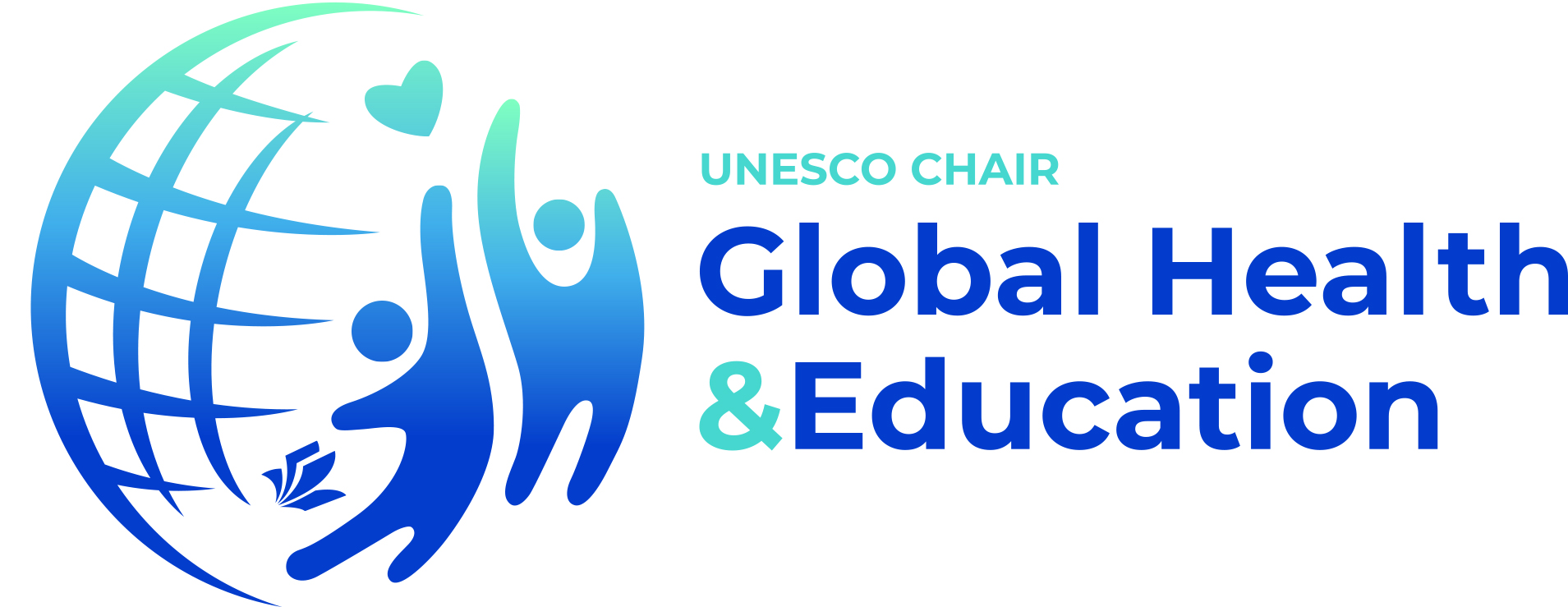It is with great pleasure that we celebrated the launch of the professional degree in health education and health promotion (EPROS) in Dakar on Monday 9 May 2022. The welcoming of the first class of the EPROS degree marks the first outcome of the intensive work carried out for many years by the teams of the Cheikh Anta Diop University of Dakar, the School Medical Control Division (Division du Contrôle Médical Scolaire) (DCMS) of the Ministry of National Education (MEN) and the UNESCO Chair Global Health & Education (Clermont Auvergne University). The training programme was co-developed with a large network of local, national and international partners[1] and the support of the local offices of UNESCO, UNICEF and WHO. The training programme aims to develop the capacities of professionals to work together with communities, in their own context, to promote individual and community health, to create healthy living ecosystems, and to develop the resilience of individuals, organisations and societies. It is based on a detailed needs assessment in order to ensure the relevance of the programme and its ability to respond effectively and sustainably to the needs of the various stakeholders.
A multidisciplinary programme, focused on the needs of stakeholders
This training programme is part of a health promotion perspective, particularly aimed at acting on the protective factors and social determinants of health. It integrates the two components necessary to build sustainable and effective responses to health challenges: the development of capacities (of individuals, communities, professionals, institutions, etc.) and action on the ecosystems of life to create environments supportive of health.
To do this, it offers a multidisciplinary programme, combining public health, education sciences, medicine, nursing sciences, and human and social sciences, and is focused on practical knowledge. In order to adapt the content of the courses to the socio-economic realities and the local situation, it provides space for professionals, and aims to combine scientific knowledge, experimental and professional knowledge and community knowledge. It is based on competencies validated by the international health promotion framework (Comp HP, IUHPE), and is anchored in a global health and sustainable development perspective.
A complete training system for professionalization and qualification
The needs assessment has shown the importance of covering both the initial training of future professionals in charge of prevention and the continuing education of professionals. The aim of this professional degree is to provide a first step in the development of a complete training course (degree – master), in order to cover the needs of all the actors: managers and professionals in the field, in particular those who work in rural areas. It is a training and professional development programme, organised in a hybrid mode with the aim of making the training compatible with the practice of professionals in continuing education and to allow the recruitment of students at the national level, and in particular to promote the inclusion of students from rural areas farthest from urban centres.
Capacity development of actors, key for promoting population health
By combining capacity development and action on environments, health promotion approaches make it possible to build sustainable and effective responses to health challenges, reduce inequalities and build the resilience of individuals, structures and societies to crises. By training and developing the capacities of professionals who work in the field of health on a daily basis, in the regions and local communities, the EPROS system aims to contribute to the development of these practices and policies that promote the health of individuals and populations, with a view to achieving the sustainable development goals of the United Nations.


